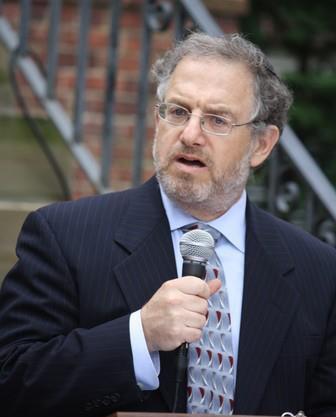This week’s Torah portion, Va’era, is set in Egypt. Moses has already returned from his exile in Midian. He has had his first and unsuccessful encounter with Pharaoh, who, in response to Moses’ request to allow the Israelites the opportunity to worship God in the wilderness, has placed additional burdens on the already overworked Israelite slaves. In addition to Pharaoh’s scorn, Moses’ own people abuse him for the troubles they believe he has brought upon them. Soon after it has begun, Moses’ mission already seems to have come to an end. He has failed as a diplomat in his attempt to negotiate his people’s freedom.
Our portion opens at this low point in Moses’ life. God resumes his conversations with the former shepherd/prince and reminds him that God has not forgotten the covenant God made with the patriarchs of Israel — Abraham, Isaac and Jacob — to give them the land of Canaan. So once again God directs Moses to bring the good news of the coming liberation to the Israelites. Sadly, however, they are unable to listen to his message because their spirits have been crushed by their oppressive labors.
Undeterred, God instructs Moses to go before Pharaoh and tell the king of Egypt to set the Israelites free. But this time Moses balks. Moses questions his ability to convince Pharaoh since he was unable to convince his own enslaved people of the seriousness of his mission. Moses doubts his own abilities.
God restores Moses’ resolve by subtlely changing Moses’ mission. Moses, along with his brother Aaron, who is reintroduced into the story at this moment, are no longer to serve as diplomats shuttling back and forth between Pharaoh’s court and the Israelite villages. They are told to stand as leaders in their own right and are given a two-fold mission: to confront both the oppressed and the oppressors. They must convince Pharaoh to free the Israelites, and they must also convince the Israelites that they deserve to be free. Slavery has perverted both the Egyptian slave masters and the Israelite slaves — so God directs Moses and his brother to shatter Pharaoh’s hardened heart and to restore the Israelites’ crushed spirits.
In many ways the second half of this directive, to make the Israelites worthy of freedom, was the more difficult. The years of bondage undermined the Israelites’ self-confidence. Rebuilding his people’s spirit was the challenge that Moses would face for the rest of his life.
The task of overthrowing the tyrant was relatively straightforward. The Torah requires only a few short chapters to lead us through the ten plagues and the crossing of the Red Sea. The task of building a free nation was far more complicated. It was the work of a lifetime. Yet we know from contemporary history that if one merely removes a tyrant and does not rebuild a nation, all one does is make way for another autocratic regime. Nation building, though sometimes maligned, remains an essential element in all struggles against tyranny.
Somehow Moses succeeds in accomplishing both parts of God’s challenge. In the weeks to come we will see how Moses breaks the bonds of pharaonic oppression and how he lays the foundation for a new nation. His greatest accomplishment was not guiding our people to freedom but empowering us to be free. Leading our people out of Egypt was the necessary first step. Moses, however, proves his greatness by giving us the Torah, our people’s spiritual constitution, by establishing a system of worship that provided access to the divine to all believers, and by peacefully passing the mantel of leadership to Joshua, his trusted disciple, at the end of his days.
In the Jewish tradition, we honor Moses’ achievements by calling him “Moshe Rabbeinu, Moses our Teacher,” not because he led us to freedom, but because he taught us how to be free. Moses accepted God’s two-fold directive and by confronting Pharaoh’s pride and power and our people’s fear and despair he became the model of a leader who is able not only to overthrow tyranny but to create the conditions of lasting freedom. In a world still threatened by tyranny, Moses remains our greatest teacher.








